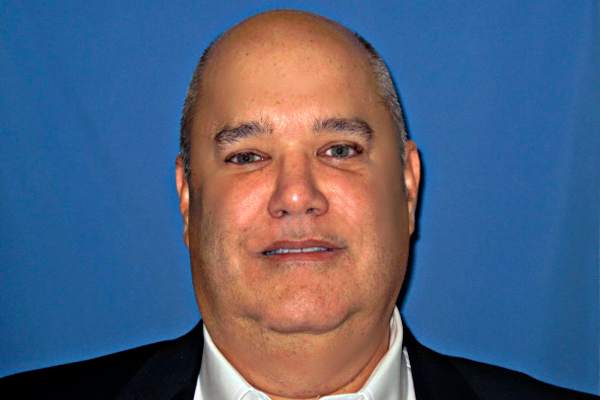Tom Ciepichal: Centered On Supply Chain Strategy

Tom Ciepichal is vice president, operational excellence and supply chain, with Dover Energy, a segment of Dover Corporation, a global manufacturer of equipment, components, and specialty systems in energy, engineered systems, fluids, and refrigeration and food equipment. He has held this position since 2016.
Responsibilities: Continuous improvement, transformation, and operational excellence in the supply chain. Design systems and solutions for supply chain effectiveness and operational improvement.
Experience: Director of operational excellence and supply chain, and segment director of global sourcing and supply chain, both with Dover Corporation; vice president of operations with OPW Fueling Components, a Dover Company; management positions with TI Automotive and Tenneco Automotive.
Education: MBA, international business, 1992; B.S., chemical engineering, 1984, both from University of Toledo.
In 1997, I had an opportunity to be a general manager in Mexico. I ran three manufacturing facilities and a warehouse, and worked with employees from different cultures to create value for our customers by improving flow through the organization and supply chain.
I hired the principal of the high school to help me study the culture, the people, and the language. Every time I made a presentation, I spoke in Spanish, rather than speaking in English and having it translated. During my first presentation to employees, one woman started crying. I asked the principal afterwards if I had insulted them. We learned that she was the first employee hired, and this was the first time in 20 years the general manager spoke to them entirely in Spanish.
In the more than two years I was in Mexico, inventory turns improved about 50 percent and on-time delivery topped 98 percent. We created a Wall of Fame where employees put their handprints whenever they made an impact through a continuous improvement activity. By the time I left, the wall contained 1,500 handprints and signatures. That was rewarding.
I started my career with Monroe Shock Absorbers, a unit of Tenneco Automotive. I was responsible for building and running an operation in the Detroit area. We sequenced and delivered products to our customer, a just-in-time car assembly plant. We would get a signal from the customer when its product left the plant’s paint booth. We had about 120 minutes to build and provide four-corner suspensions, brakes, cross-members, mufflers, and exhaust. This process taught me the importance of supply chain and logistics.
The supply chain touches so many areas and functions—engineering, finance, human resources, and operations—and is critical to the lifeblood of the organization. That makes it an exciting endeavor.
More recently, I helped establish Dover’s center-led supply chain organization, where we develop approved suppliers and work with the operating companies and business units to determine the best ways of providing value to their customers through the supply chain activity. Then it’s up to the operating company to utilize that value to benefit the customer.
One goal in implementing a center-led supply chain is concentrating spend with strategic suppliers that more than offsets inflation pressures. We increased our focused spend with strategic suppliers more than 100 percent since we started.
Being able to provide value to the organization and our customers has been exciting. We had never done a center-led supply chain at Dover, and it required a lot of collaboration from all the companies to help set direction and strategy, and then execute to deliver.
Working with great people and providing opportunities to challenge themselves, develop their skills, and grow within the organization is rewarding. Seeing employees take on more responsibility and achieve results is exciting.
The Big Questions
What would you tell your 18-year-old self?
Set a goal, drive to achieve it, and then set another goal. Always keep striving.
What book has impacted you?
Stop Spending, Start Managing by Leigh L. Thompson and Tanya Menon. It focuses on how people often spend money trying to solve a problem when they have the ability to solve it. It’s a matter of overcoming obstacles and focusing on solving the problem.
If you could have dinner with anyone, living or dead, who would you choose?
Dwight Eisenhower. He had to manage and engage a lot of egos, and get them to align to a common goal.
I also would have liked to be a fly on the wall when Harvey Firestone, Henry Ford, and Thomas Edison would get together. It would be interesting to learn how they started the modern industrial revolution.
